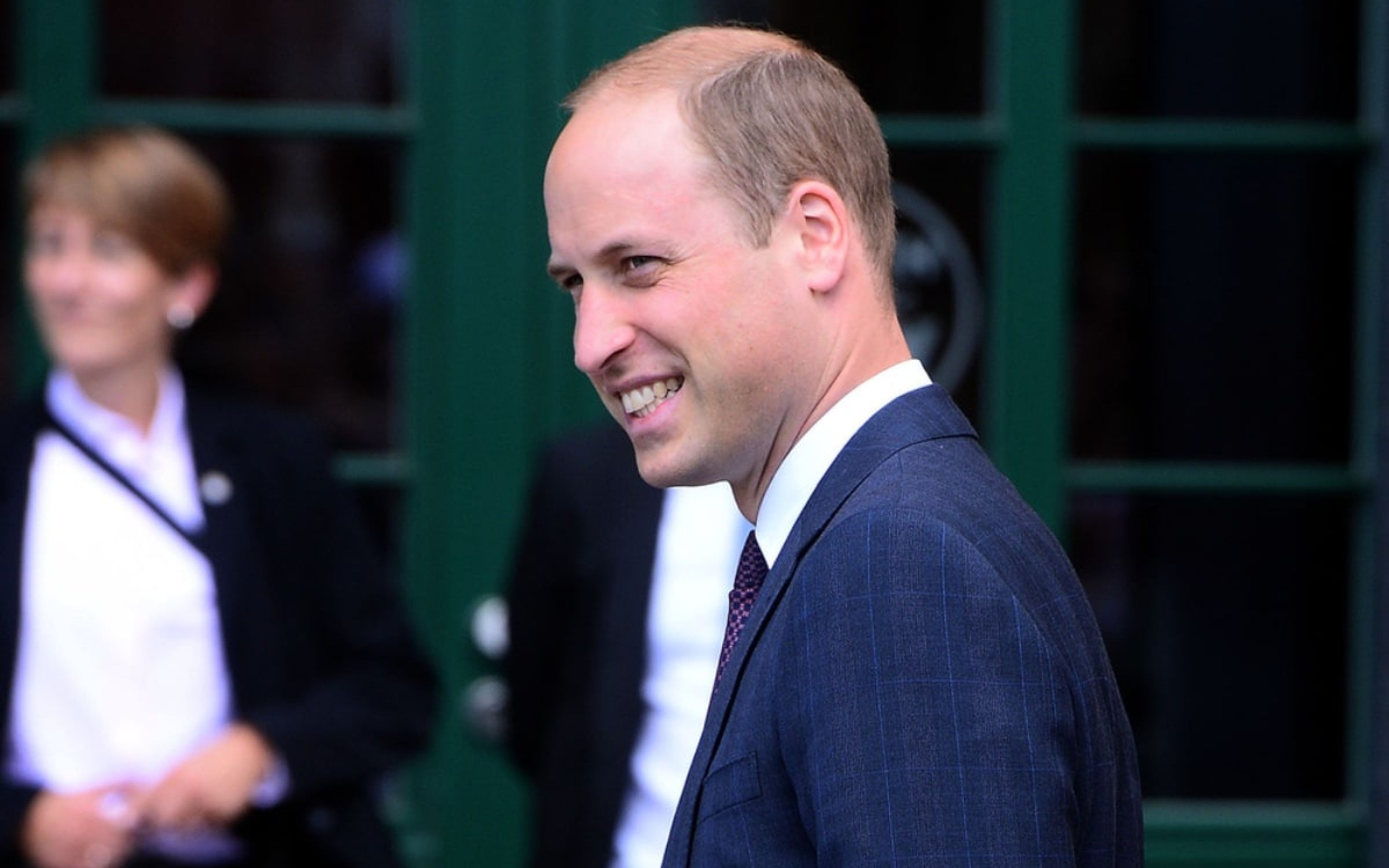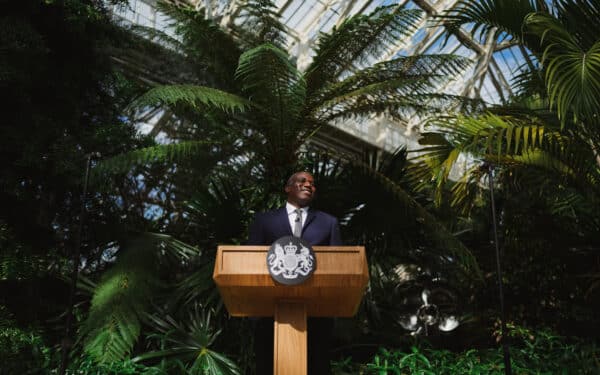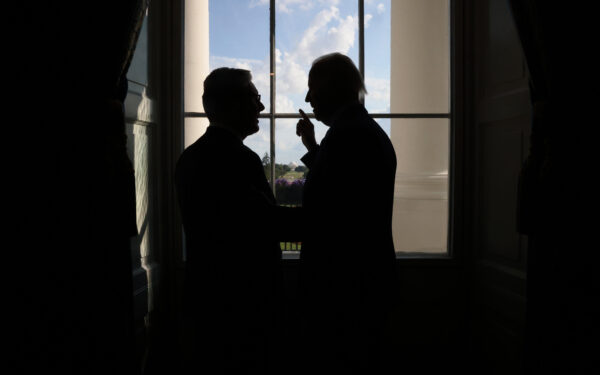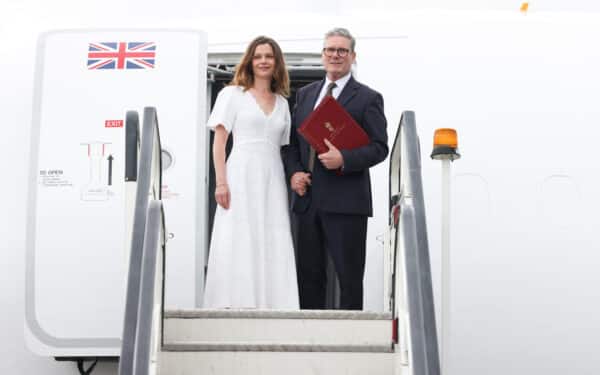Is it ever right for our royals to wade into politics? A rare intervention in the Middle East conflict this week has prompted hysteria in some quarters, with warnings of dangerous precedents being set that could threaten the very future of the monarchy.
GB News viewers and Telegraph letter writers, in particular, along with several Tory politicians, were fuming over the “too many have been killed” comments made by the Prince of Wales on Tuesday ahead of his visit to the British Red Cross in London.
The Conservative peer Stewart Jackson said the remarks were “ill-timed and ill-judged”, while Nigel Farage said William had gone a “step too far” and should stick to presenting the Baftas (although that was actually David Tennant).
Only the next day’s antics in the Commons, where partisan politics took priority over a serious debate on Gaza, put William’s political foray into perspective. Who here was the real grown up, respectful of the democratic process?
While William is taking the flak, he was hardly blundering into the fray on impulse to get his feelings about the Palestinians off his chest.
His words were chosen, probably not by him, with the utmost caution and would have gone through the Foreign Office and the Foreign Secretary, not to mention Number 10, scrutiny. Even the leader of the opposition, Sir Keir Starmer, is likely to have been in on it.
“I, like so many others, want to see an end to the fighting as soon as possible,” is the most controversial sentence he ushered.
It is difficult not to see this as an attempt to increase pressure on Israel, timed on the eve of that parliamentary debate that never was, and coinciding with the government’s harder line against Israel’s planned offensive in Rafah.
Far from being a loose cannon, the heir to the throne – if he has indeed allowed himself to be used as a political pawn – has taken one for the team.
It would have been considerably more problematic, and unlikely, if his statement had contradicted current government thinking.
In the event, the caveated musings, with references to the Israeli hostages being released and no inclusion of the word “ceasefire”, have been welcomed by the public.
A YouGov poll found that 47 per cent felt it was “appropriate” for the Prince to comment on the crisis, more than double the 24 per cent who believed it was “inappropriate”.
Tellingly, the Chief Rabbi, Ephraim Mirvis, welcomed his “words of compassion” and recalled William’s visit to Israel and the West Bank in 2018, the first by a senior British royal, demonstrating his interest in the region. Maybe the rabbi also saw this week’s statement before it was released.
William is soon to visit a synagogue to hear from young people who advocate against anti-semitism. And let’s not forget that after the Hamas attack on October 7, the Prince and Princess of Wales were quick to condemn the terror attacks and reaffirm Israel’s right of self-defence against them.
Our future king cannot be accused of taking sides in this war and his expressed desire to see a lasting peace and an end to the suffering is no doubt genuine.
As a relatively new Prince of Wales, he has yet to match his father’s appetite, developed over many years, for public pronouncements on topical matters. But he has already embraced worthy and not overly contentious causes, such as homelessness.
He raised eyebrows after the invasion of Ukraine when he reportedly said it was “alien” to see war in Europe. But with the country united in support of President Zelensky, the royals reflected national sentiment in backing the Ukrainians.
William and Catherine wore the Ukrainian colours, while Charles, still Prince of Wales, was blunter, saying: “We are in solidarity with all those who are resisting brutal aggression”.
The Queen herself was said to have used a well-placed vase of blue and yellow flowers, during a meeting with Canadian premier Justin Trudeau, to convey her own feelings.
She may have been the epitome of restraint in her 70-year reign, but she was quite capable of playing politics. Her intervention in the Scottish independence referendum of 2014, when she told a well-wisher at Crathie Kirk that she hoped voters would “think very carefully about the future”, is believed to have influenced the vote days later.
There are moments when it is expected of the royals to mirror the national mood and remind us why they are there. If they are to continue to be important to the life of the nation, they sometimes must put a head above the parapet.
And better, in most cases, that the head belongs to the Prince of Wales and not the King, whose duties are more circumscribed, as the naturally impassioned Charles has apparently accepted.
William has not unleashed a new era of royal politicking with his Gaza statement but seems to have followed protocol in exercising soft political power. So long as he picks his battles and does not go rogue, the monarchy is probably safe for now.
Write to us with your comments to be considered for publication at letters@reaction.life





